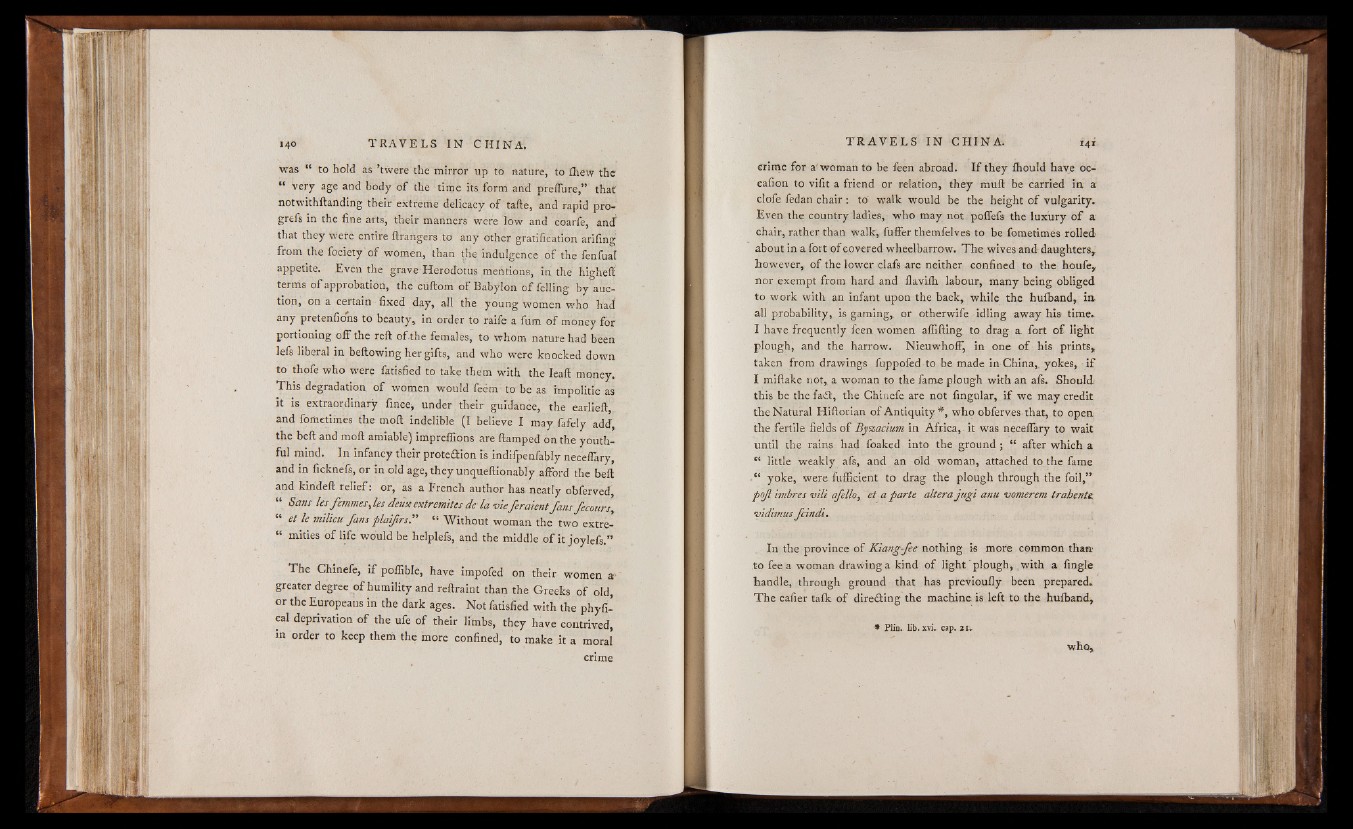
was “ to hold as ’ twere the mirror up to nature, to ihew the
very age and body o f the time its form and prefiure,” that
notwithftanding their extreme delicacy o f tafte, and rapid pro-
grefs in the fine arts, their manners were low and coarfe, ancl
that they were entire ilrangers to any other gratification arifing
from the fociety o f women, than the indulgence o f the fenfual
appetite. Even the grave Herodotus mentions, In the higheffi
terms o f approbation, the cuftom o f Babylon o f felling by auction,
on a certain fixed day, all the young women who had
any pretenfions to beauty, in order to raife a fum o f money for
portioning off the reft of.the females, to whom nature had been
lefs liberal in beftowing her gifts, and who were knocked down
to thofe who were fatisfied to take them with the Ieaft money.
This degradation o f women would feem to be as impolitic as
it is extraordinary fince* under their guidance, the earlieft,
and fometirnes the moft indelible (I believe I may iafely add,
the beft and moft amiable) imprefiions are ftamped on the youthful
mind. In infancy their prote&ion is indifpenfably necefiary,
and in fickneis, or in old age, they unqueftionably afford the beft
and kindeft relief i or, as a French author has neatly obferved,
Sans les femmes Jes deux extremites de la vie feraient fans fecours,
et le milieu fans plaiftrs." “ Without woman the two extre-
“ mities o f life would be helplefs, and the middle o f it joylefs.”
The Chinefe, i f poifible, have impofed on their women a-
greater degree o f humility and reftraint than the Greeks o f old,
or the Europeans in the dark ages. Not fatisfied with the phyfi-
cal deprivation o f the ufe o f their limbs, they have contrived,
in order to keep them the more confined, to make it a moral
crime
crime for a' woman to be feen abroad. I f they fhould have oc-
eafion to vifit a friend or relation, they muft be carried in a
clofe fedan chair : to walk would be the height o f vulgarity.
Even the country ladies, who may not pofiefs the luxury o f a
chair, rather than walk, fufFer themfelves to be fometirnes rolled
about in a fort o f covered wheelbarrow. The wives and daughters,
however, o f the lower clafs are neither confined to the houfe,
nor exempt from hard and flavifh labour, many being obliged
to work with an infant upon the back, while the huiband, in
all probability, is gaming, or otherwife idling away his time.
I have frequently feen women affifting to drag a fort o f light
plough, and the harrow. Nieuwhoff, in one o f his prints,
taken from drawings fuppofed to be made in China,, yokes, i f
I miftake not, a woman to the fame plough with an ais. Should
this be the fa£t, the Chinefe are not Angular, if we may credit
the Natural Hiftorian o f Antiquity * , who obferves that, to open
the fertile fields o f Byzacium in Africa, it was neceflary to wait
until the rains had foaked into the ground ; “ after which a
” little weakly afs, and an old woman, attached to the fame
>“ yoke, were fufficient to drag the plough through the foil,”
poft imbres v ili afello, et a parte altera ju g i anu vomerem trahente.
vidimus fcind i.
In the province o f Kiangfee nothing is more common than
to fee a woman drawings kind o f ligh t' plough, with a fingle
handle, through ground that has previoully been prepared.
The eafier talk o f direiting the machine is left to the huiband,
* Plin. lib. xvu cap. 21»
who,